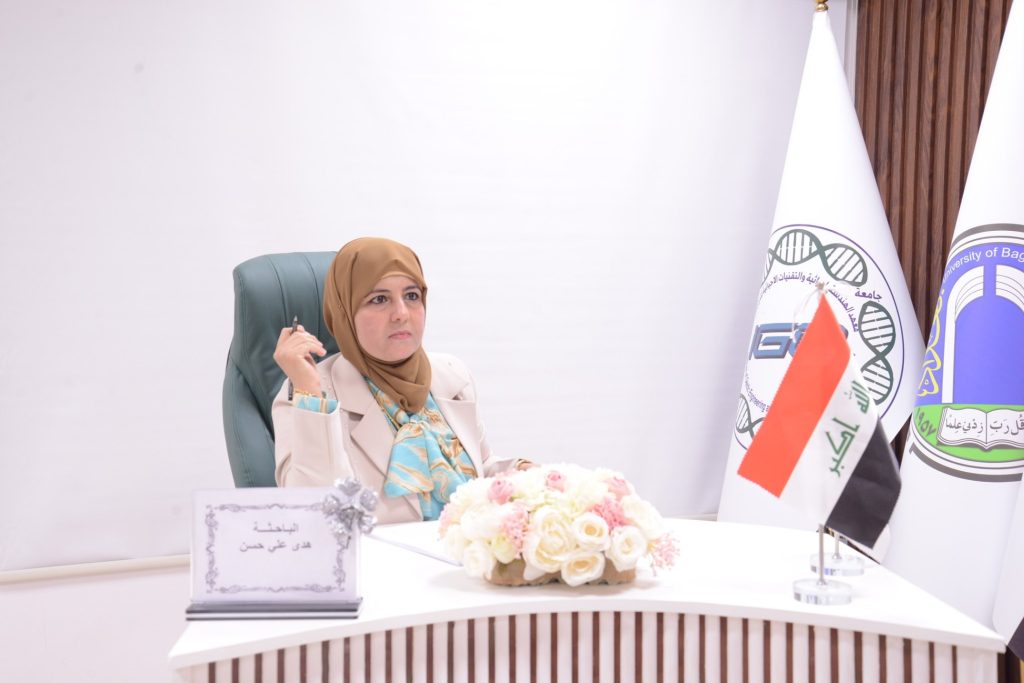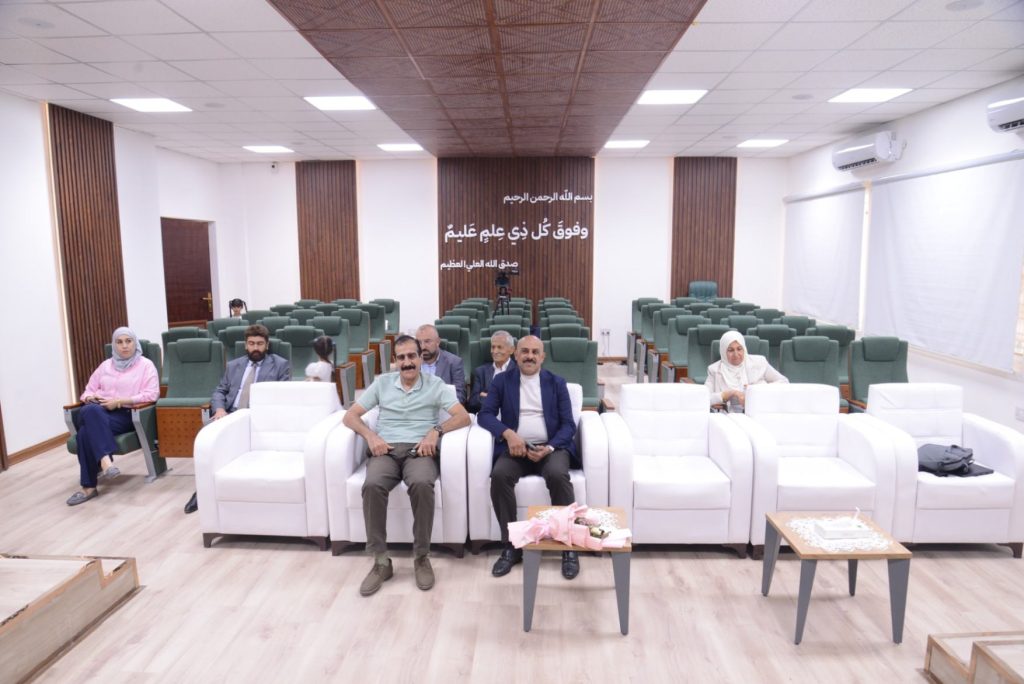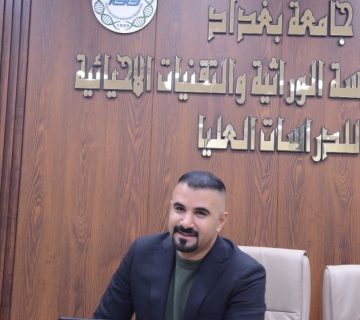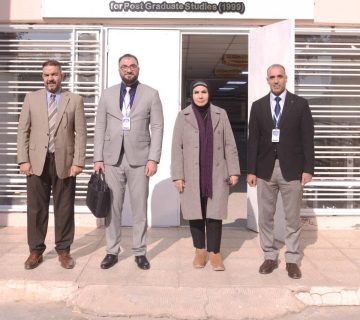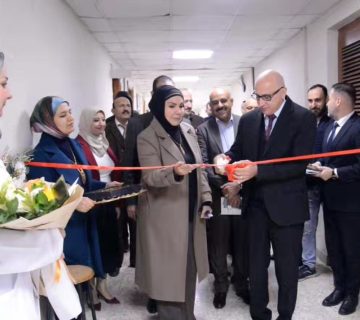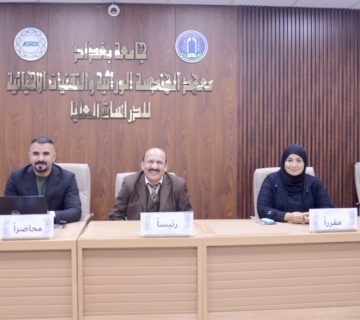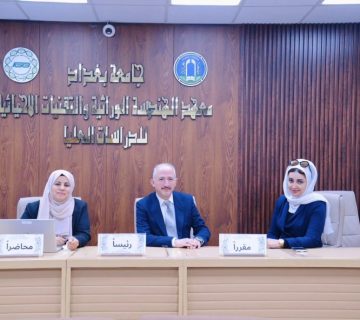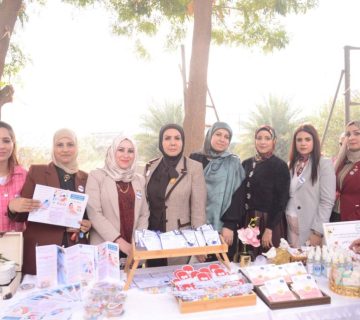The Institute of Genetic Engineering and Biotechnology for Postgraduate Studies at the University of Baghdad discussed the doctoral dissertation of student Huda Ali Hassan, titled:
“A Study of the Relationship Between Genotypic Polymorphisms and Gene Expression of TSHR and FOXE1 and the Incidence of Hyperthyroidism,” under the supervision of Prof. Dr. Rafid Abdul Wahid Al-Moussawi, Head of the Genetic Engineering Department.
The dissertation aimed to investigate the impact of radioactive iodine treatment on the gene expression of TSHR and FOXE1 before and after treatment in Iraqi patients with hyperthyroidism. It also sought to determine the association between two specific single nucleotide polymorphisms (SNPs) in the TSHR gene and the incidence of hyperthyroidism, in addition to examining the relationship between two SNPs in the FOXE1 gene and the disease among Iraqi patients.
The study showed that FOXE1 gene expression was significantly higher in the control group compared to both patient groups—before and after radioactive iodine treatment.
It concluded that TSHR gene expression was also higher in the control group, although not statistically significant when compared with the patient groups before and after treatment. However, a significant difference in TSH hormone levels was observed between patients before and after treatment.
The genetic analysis revealed that for the FOXE1 gene SNP rs_1867277, the AG genotype acted as a protective factor, whereas the GG genotype represented a risk factor. For FOXE1 gene SNP rs_965513, both AG and GG genotypes were considered protective. Conversely, for the TSHR gene SNP rs_2075179, the TC and CC genotypes were found to be risk factors associated with the disease.
The dissertation recommended conducting further studies involving other genes linked to hyperthyroidism, as well as increasing the sample size in future research to confirm the statistical and clinical significance of the findings. It also suggested selecting genes that may directly or indirectly respond to thyroid radiation treatment.
Moreover, it recommended dividing patients into two groups prior to sample collection: one with Graves’ disease and the other with toxic goiter.
Future research could also explore the post-genetic (epigenetic) influences on thyroid dysfunction and their correlation with treatment response. The study proposed additional research on TSHR antibody testing in Graves’ disease patients undergoing radioactive treatment, both before and after therapy. Lastly, it emphasized the need for further studies to understand the relationship between the TSHR and FOXE1 genes, and the mechanism by which the rs_965513 genotype affects transcription regulation of both genes.


